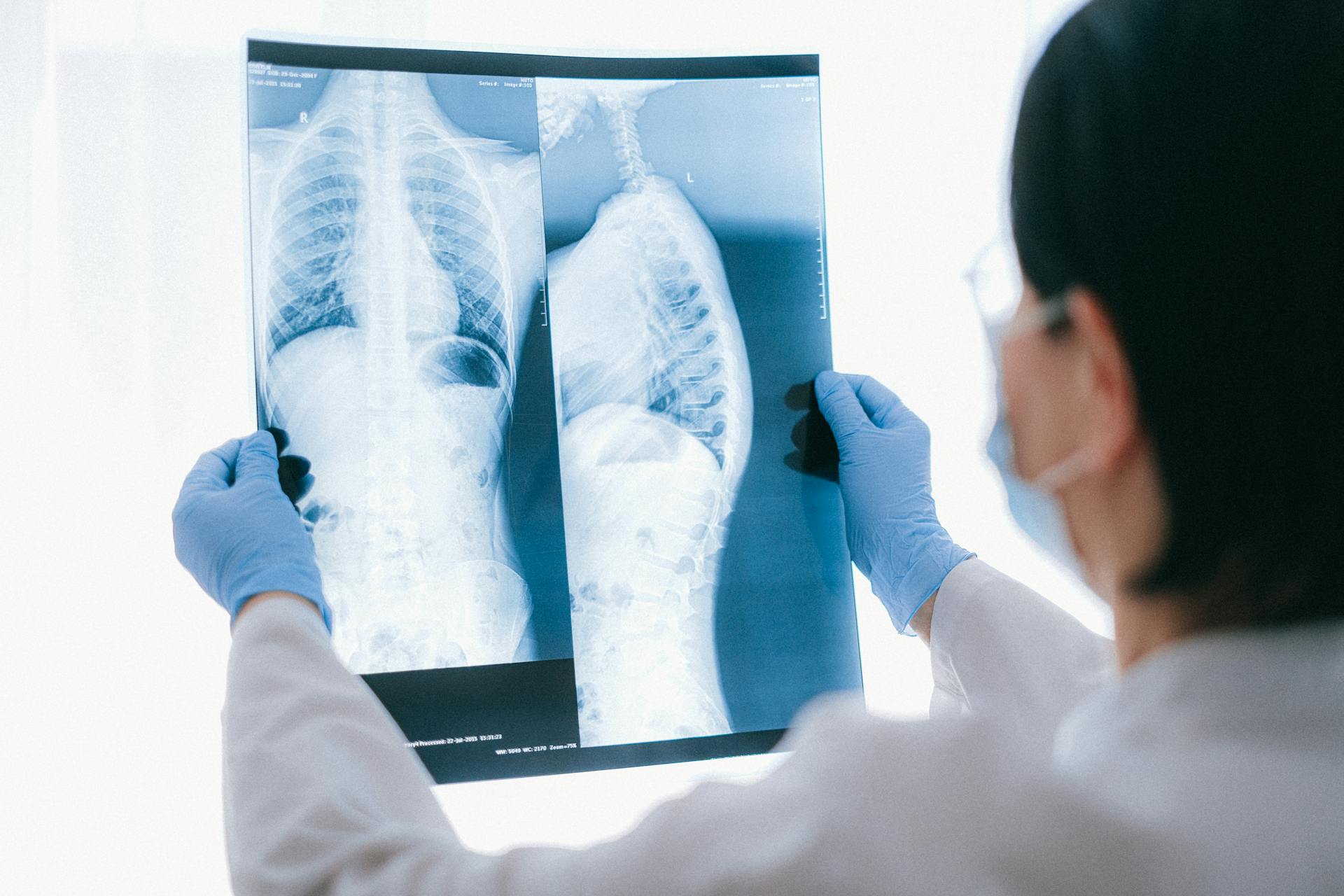
Psychological theories are the cornerstone of understanding human thought processes and behaviors. These theories help us to explain ways in which individuals perceive, think, feel, and behave in a given situation. Whether you are a manager trying to find motivation for your employees in the office space or simply exploring ways to develop strategies for your own work environment, psychological theories have something to offer everyone.
In this article, we will explore psychological theories and discuss nine helpful examples that can be applied in various settings. We will decode the mind behind these theories and take a closer look at how they can be used to motivate employees, understand human behaviors, and create a more productive work environment. So, whether you are an aspiring psychologist or simply someone interested in learning more about human nature, read on as we review helpful examples of psychological theories!
Understanding the mind: Psychological theories decoded.

Psychological theories are the basis for understanding human thoughts and behaviors. These theories help us to get a deeper insight into the various emotions psychology researchers create, which make predictions about future human behaviors.
The study of psychological theories is crucial in comprehending why certain behaviors exist and how they can be changed by drafting plans. For instance, companies can use these theories to develop employee behaviors that increase motivation and promote productivity. Understanding these theories can also help individuals make sense of their own emotions and actions, leading to personal growth and development.
The Opinions of Our Beloved Readers: What They Have to Say
We are thrilled to share with you some of the opinions expressed by our beloved readers about our latest article on psychological theories. Kimberly Ramsey, a resident of Chicago, commented on September 28, 2022, saying that there was plenty of information in the article which helped her understand how relevant theories can motivate communities. Dr Joan, an expert in cultural heritage studies, pointed out on July 26, 2022 that the developmental science attachment theory and Tomosello's cross-species work are fundamental concepts in understanding human behaviour.
Hey Nicole, we also received your comment on June 14, 2022. You pin pointed that there was a big hole in the article since it did not explain involvement in intrinsic motivation. We appreciate your feedback and want to elaborate that one of the theories we covered was Self-Determination Theory (SDT). SDT has three fundamental elements - affiliation, competence and autonomy - which are essential components for understanding intrinsic motivation.
We would also like to mention Maslow's Hierarchy Theory which Nicole found "an excellent summary" on July 15, 2022. This theory is significant as it helps us understand how different human needs drive behaviour. The opinions shared by our readers highlight how important it is to cover a wide range of psychological theories such as these for residents, companies and experts alike. A huge thank you to all our readers for sharing their thoughts!
1. Let us know your thoughts
I find psychological theories fascinating because they attempt to explain why we do the things we do. From Freud's psychoanalytic theory to Maslow's hierarchy of needs, these concepts provide insight into our behavior and motivations. I would love to learn more about how these theories can be applied in real-life situations. Share your thoughts by leaving a comment or emailing me at the provided email address!
2. How to Assess and Improve Readiness for Change
Assessing and improving readiness for change can be a crucial step for clients seeking professional help. According to psychological theories, individuals who are more willing to change are more likely to succeed in their personal growth and development. Some ways to assess readiness for change include exploring an individual's motivation, examining their level of self-efficacy, and identifying potential obstacles that may hinder progress. By improving readiness for change, clients can increase their chances of achieving long-term success in therapy.
3. What Is Motivational Enhancement Therapy (MET)?
Motivational Enhancement Therapy (MET) is a psychological therapy that focuses on increasing an individual's motivation to change. In recent years addiction treatments have shifted away from punitive methods and abstinence protocols, recognizing the importance of motivation in successful recovery. MET has been shown to be a powerful predictor of positive treatment outcomes by helping individuals identify personal reasons for change and setting achievable goals.
4. Motivational Interviewing Training: Top 14 Courses
Motivational interviewing is a psychological theory that helps people change their behavior. If you're looking for a way to learn more about it, there are many courses available. The top 14 courses can help you learn how to motivate others to make positive changes in their lives. Change involves chartering unknown territories and putting in the effort to achieve personal growth.
Unleash Your Business Potential with Motivational Theories

Are you looking to enhance your workplace productivity and employee satisfaction? Look no further than the psychological theories developed in organizational settings. These theories focus on core motivational aspects, such as autonomy wellbeing and equity theory, that can optimize employees' performance.
Factor theory, for example, identifies key factors that contribute to job satisfaction, while the Hawthorne effect highlights the importance of social and environmental factors in motivating employees. By understanding these motivational theories, you can create a more positive work environment that encourages your team to reach their full potential. So why not unlock your business's potential today by exploring these powerful tools?
1. Theory X and Theory Y
Theory X and Theory Y are psychological theories proposed by Douglas McGregor to explain employee motivation. Theory X describes employees as being divided into two groups: those who avoid work and dislike responsibility, and those who must be heavily informed, enforced with rules, and punished to exert effort. On the other hand, Theory Y suggests that employees enjoy work, show creativity, and are motivated by opportunities to develop themselves. Intrinsic motivation plays a major role in this motivating theory, which leads to higher job satisfaction and more effective employee motivation.
2. Theory Z
Theory Z is a psychological theory that was developed by Dr. William Ouchi. Ouchi's theory focuses on increasing employee loyalty and well-being by encouraging group work and social interaction in the workplace. This theory aims to motivate employees to work harder and be more productive, while also creating a positive and supportive work environment.
3. The Hawthorne Effect
The Hawthorne Effect is a phenomenon where individuals modify their behavior when they are aware of being observed. Elton Mayo developed this theory during his studies at Hawthorne Works factory in the 1920s. He noticed that workers' performance increased when they were provided with input and felt like their opinion matters, regardless of any actual changes to the work process. This effect continues to be relevant in modern psychology research and can have important implications for understanding how people behave in workplace environments.
Discover a Variety of Captivating Articles

Are you interested in learning about psychological theories? Look no further! We have compiled an extensive list of captivating articles that cover everything from manufacturing definitions to 6 psychographics examples.
Our definitive guide on proper marketing segmentation will teach you the 7 steps needed to effectively reach your target audience, while our lesson plan on good restaurant customer service will ensure your staff is providing the best experience possible.
If you're looking for more specific information, we also offer 9 examples of work-in-progress journal entries and 3 methods for solving problems. And for those who prefer data-driven research, we have included 24 important questions to ask when conducting market research and access to 23 research databases. So whether you're a mail carrier or just someone who enjoys reading, there is something here for everyone!
Motivational Theories in Sports Psychology
Performance psychology is a core concept in sports psychology, and understanding motivation is essential for athletes to perform at their best. From a performance perspective, psychological arousal accompanies behavior, meaning that when an individual feels subjectively aroused, it implies physiological arousal as well. Robert Thayer (1989) evolved the concept of psychological arousal into two dimensions: energetic arousal and tense arousal composed of tense and energetic dimensions.
Tense arousal signifies psychological arousal that leads individuals to feel tense or anxious. Anxiety (trait anxiety or state anxiety) is a general negatively toned mood state that refers to how much arousal originates from within the person. Arousing function is the capacity of cues or background stimuli to increase an individual's level of tension or psychological arousal. Cue function explains how novelty, complexity, and task difficulty of stimuli can influence the level of tension or other forms of physiological activation in response.
Thayer found that levels of psychological arousal vary depending on several complex variables such as novelty, complexity, and familiarity with certain stimuli. For instance, drinking an evening coffee might boost one's arousal level before studying for exams or music performance but may not be effective before sports competitions. In some instances, an increase in arousal can improve behavioral efficiency; however, in others, it decreases it.
1. Optimal functioning hypothesis
The optimal functioning hypothesis is a psychological theory that sports psychology identifies to explain how arousal affects an athlete's performance. Hanin (1989) proposed that arousal increases performance up to a certain point, after which performance declines. This inverted-U nature suggests that there is an optimal level of arousal based on the preferred area of the athlete's somatic anxiety, where they are at their high point and able to perform at their best. Understanding this theory can help athletes and coaches optimize their training and performance.
2. Hull–Spence drive theory
The Hull-Spence drive theory is a psychological theory that proposes that arousal affects performance. This theory is part of the broader drive reduction theory, which explains human behavior in terms of reducing physiological needs. While it has largely been replaced by more complex cognitive theories, such as the cusp catastrophe model and the attentional control theory, it still has relevance in sports psychology through arousal-biased competition theory and processing efficiency theory, which highlight the cognitive aspects of how arousal affects behavioral efficiency.
3. Arousal-biased competition theory
Sutherland (2011) developed the arousal-biased competition theory, which suggests that arousal exhibits biases that affect how we process important information. Arousal improves our ability to focus on crucial stimuli, while background stimuli are ignored. This theory highlights the importance of understanding how psychological states can impact our ability to attend to critical information.
4. Two memory systems theory
Jacobs (1998) postulated the Two Memory Systems Theory where he proposed that our memory is composed of two systems: the cool memory system and the hot memory system. The cool system is located in the hippocampus, and it serves to remember events occurring around us while the hot system, found in the amygdala, remembers highly stressful or arousing events. Jacobs theorized that high arousal (Metcalfe) could predict danger, which leads to intrusive memories of experienced extremely traumatic events. In short, this theory helps us understand how we process and remember different types of memories.
5. Processing efficiency theory
The processing efficiency theory suggests that anxiety expressed by individuals can influence their performance preoccupation on cognitive tasks. Calvo theorized that the decline in working memory capacity can have an impact on how much information is processed, which ultimately turns into a decline in performance. The Eysenck & Calvo 1992 study highlights how this theory plays out in real life situations.
Get Your Hands on a Complimentary Goals Pack in PDF Format
Looking to set and achieve your goals like a pro? Then you're in luck! Get your hands on a complimentary Goals Pack in PDF Format today. This pack is designed to help you better understand how to achieve your goals by using psychological theories.
To download the Goals Pack, all you need to do is provide your email address and click on the download button. Don't worry about sharing your personal information as it will be used for validation purposes only.
Once you've entered your email address, simply hit the "download" button and start working towards achieving your goals. And, if you'd like to receive other helpful tips and resources straight to your inbox, make sure to leave this field unchanged so we can keep sending valuable content your way.
Download 3 Free Goals Exercises (PDF)

Looking for ways to improve your goal-setting skills? Look no further than these three free goals exercises available for download in PDF format. These detailed science-based exercises will help you master techniques for setting and achieving actionable goals, whether you're a therapist helping clients create lasting behavior change or simply looking to improve your own personal development. Download now and start working towards becoming the best version of yourself!
Understanding the Different Types of Psychological Theories
Psychological theories are frameworks used to understand human behavior and mental processes. There are several common types of psychological theories that researchers and practitioners use in implementing shifts in the work environment, such as instance organizational leaders who can utilize psychological theories to inform recruitment and onboarding employee satisfaction. By understanding the different types of psychological theories, we can better understand how to apply them to create a positive work culture and improve overall productivity.
1. Grand theories
Grand theories address a broad range of topics including biological psychology, developmental psychology, evolutionary psychology, cognitive psychology, humanistic psychology, and socio-cultural psychology. These theories provide information about the basic model for understanding human behavior and how development occurs. Psychologists also use smaller theories or mini theories to explain specific behaviors within the grand theories. Grand psychological theories provide a foundation for understanding human development and behavior in a comprehensive way.
2. Mini theories
Mini theories are small-scale theories that focus on specific behaviors or phenomena, rather than attempting to explain everything in one grand theory. They draw conclusions based on previous research and the bases outlined by larger psychological theories. These mini theories cover a wide range of topics and provide information that can be applied in real-world situations.
3. Emergent theories
Psychology emergent theories explore human behaviors in group settings and how individuals react to the social conformity around them. These theories refer to the integration of mini-theories to develop research on group social interactions. Sociocultural theory concludes that emergent theories arise from a combination of individual and cultural factors, shaping our behavior as we participate in group dynamics. Understanding these theories can shed light on why people behave the way they do in groups and how we can use this knowledge to improve our social interactions.
What You Need to Know: The Take-Home Message

Psychological theories are essential in understanding human nature, what constitutes human motivation, and the motivational dilemma. Ancient foundations have been built upon by contemporary extensions, making it easier for people to understand human motives, such as happiness and parenthood commentary. For instance, dan kahneman argues teaching psychology and experiential learning can help annihilating desires.
The article delves into various motivational theories like the image 1 Maslow pyramid adapted from Boehm (2010) perspectives, which explains the goal achievement exercises that people need to undertake. Social exchange advances from 1965 inequity by experimental social psychology vol 2 pp 267-299 York NY Academic Press are also discussed.
Moreover, psychological reactance and learned helplessness continuous performance strategy such as achievement cognitions or failure journal of social psychology 365 451-462 are explored in detail. The article also offers an insight into other areas of interest like collective identities or action educational psychologist 442 78-89 on life personal growth and building sustainable landscapes landscape journal 82 101-110. Overall, if you enjoyed reading this piece, don't forget to check out the references mentioned above for a more comprehensive understanding of psychological theories.
Textbooks on Motivation
If you're interested in studying motivation, there are several suggested book references for tertiary-level study. Some options include "Motivation and Personality" by Abraham Maslow, "Drive" by Dan Pink, and "Self-Determination Theory: Basic Psychological Needs in Motivation, Development, and Wellness" by Richard Ryan and Edward Deci. These textbooks provide a comprehensive overview of various psychological theories on motivation and are great resources for those wanting to dive deeper into the subject matter.
1. Understanding Motivation and Emotion – Johnmarshall Reeve
Johnmarshall Reeve's book delves into the complex world of motivation and emotion, exploring how these two elements impact learning performance and everyday life. Through a wide variety of examples, Reeve examines the role that emotional processes play in shaping our behavior and offers practical interventions for those looking to improve their overall well-being. Whether you're a student struggling with motivation or simply interested in learning more about the inner workings of the human psyche, this book is an essential read for anyone looking to better understand themselves and others.
2. Motivation: Theories and Principles – Robert C. Beck
Robert C. Beck's "Motivation: Theories and Principles" is an experimentally oriented book that takes a topical approach to the broad range of motivational concepts. Beck offers a critical examination of each theory, including animal theory and biological bases, making it a must-read for anyone interested in understanding human behavior.
3. Motivation – Lambert Deckers
Motivation is a complex topic in psychology, and Lambert Deckers' book provides a complete overview of the various theories that seek to explain it. The book offers an overarching organizational scheme that helps readers navigate this large and diverse field, which includes biological psychological, cognitive, and environmental sources of motivation. By exploring the interplay between behavior, feelings, and motivation, readers will gain a deeper understanding of what drives human action.
4. Motivation and Emotion Evolutionary Physiological, Developmental, and Social Perspectives – Denys A. deCatanzaro
In "Motivation and Emotion Evolutionary Physiological, Developmental, and Social Perspectives" by Denys A. deCatanzaro, the author highlights material from a topically organized chapter that provides a concise overview statement of various psychological theories. The personal summary offers a special importance to the relationship between motivation and emotion, while the author concludes major sections with insights gained from evolutionary, physiological, developmental, and social perspectives. Overall, this text is an essential read for anyone interested in gaining a comprehensive understanding of these complex concepts.
5. Motivation: A Biosocial and Cognitive Integration of Motivation and Emotion – Eva Dreikurs Ferguson
Motivation and emotion are closely related and Eva Dreikurs Ferguson's theory emphasizes the integration of both biosocial and cognitive factors to explain human behavior. This theory takes into account a wide range of motivational factors, including hunger, thirst, circadian rhythms, fear, anxiety, anger, aggression, achievement, and attachment. By exploring how these biological and cognitive processes interact with each other, we can gain a deeper understanding of what drives human behavior.
6. Human Motivation – Robert E. Franken
Robert E. Franken's book "Human Motivation" explores day-to-day human motivation and how it affects behavior. The book's topical organization shows students the relationship between biology, learning, cognition, and individual differences that all interact to produce human behavior. For those interested in psychological theories, this book is a must-read as it delves into the complex factors that drive our actions.
7. The Psychology of Action: Linking Cognition and Motivation to Behavior – Peter M. Gollwitzer and John Bargh
Renowned social and motivational psychologists Peter M. Gollwitzer and John Bargh present concise formulations on the psychology of action in their latest research programs, effectively mapping out the territory and providing suggestions for innovative strategies. Their work links cognition and motivation to behavior, shedding light on the complex processes that drive human action. This article will explore their findings and suggest areas for future research in this exciting field.
8. Motivation and Self-Regulation Across the Life Span – Jutta Heckhausen and Carol S. Dweck
The study of motivation and self-regulation across the life span plays a critical role in psychological theories. According to Jutta Heckhausen and Carol S. Dweck, motivational systems are essential for development and growth throughout our lives. Understanding the interrelations between these systems is key to comprehending how motivational processes influence behavior and shape our personalities.
9. Reclaiming Cognition: The Primacy of Action, Intention, and Emotion (Journal of Consciousness Studies) – Rafael Nunez and Walter J. Freeman
In their article "Reclaiming Cognition: The Primacy of Action, Intention, and Emotion", Nunez and Freeman depart radically from traditional cognitive science models derived from computational theory. They argue that cognition should not be understood as a disembodied, abstract process carried out by the brain alone. Instead, they propose that action, intention, and emotion must be given primacy in our understanding of cognition. This thought-provoking perspective challenges the status quo of psychological theories and could revolutionize how we approach the study of human behavior.
10. Motivation: Theory, Research, and Applications – Herbert L. Petri and John M. Govern
Motivation: Theory, Research, and Applications by Herbert L. Petri and John M. Govern is a must-read for anyone interested in the latest developments in psychological theories. This book explores biological behavioral as well as cognitive explanations for human motivation, offering clear explanations allowing readers to better understand this complex topic. Whether you're a psychology student or simply curious about what drives human behavior, this book is an excellent resource.
11. Intrinsic & Extrinsic Motivation: The Search for Optimal Motivation and Performance – Carol Sansone and Judith M. Harackiewicz
In the article "Intrinsic & Extrinsic Motivation: The Search for Optimal Motivation and Performance" by Carol Sansone and Judith M. Harackiewicz, the authors explore the concepts of intrinsic motivation and extrinsic motivation in relation to performance. They provide a summary view of previous research on these topics but highlight that questions remain unanswered. Understanding intrinsic motivation is crucial for achieving optimal performance, but more research is needed to fully comprehend its impact.
12. The Psychobiology of Human Motivation (Psychology Focus) – Hugh Wagner
"The Psychobiology of Human Motivation (Psychology Focus) – Hugh Wagner" is an intriguing article that delves into the depths of human motivation. This theory explores not only the basic physiological needs that drive our behavior, but also the complex aspects of social behavior and how they impact our actions. It's a fascinating read for anyone interested in understanding what makes us tick, and I highly recommend diving deeper into this topic.
Examples of psychological theories
Psychological theories are concepts used to explain and predict human behavior. There are a plethora of common psychological theories such as the psychoanalytic theory, which Freud developed, the behavioral theory that focuses on observable behavior, and the cognitive theory that concentrates on mental processes like thinking and memory. These theories can be applied to various scenarios, including workplace policies procedures, where managers can use them to better understand their employees' behavior and motivation.
1. Psychoanalytic theory
Psychoanalytic theory, developed by Sigmund Freud, is a psychological approach that focuses on understanding personality development and the human psyche. Psychoanalytic theory psychologists believe that personality organization is based on three primary factors: the id unconscious foundation for impulsive behaviors, the ego subconscious standards for behavior, and the superego sense of morality. Understanding psychoanalytic theory can provide insight into how our personalities develop and shape our behavior.
2. Hierarchy of needs
Abraham Maslow created the Hierarchy of Needs as a motivational theory to understand human survival and development. The theory is organized into five levels, with basic needs like feeling safe and securing physiological requirements at the bottom and self-actualization at the top, which helps people reach their full potential. Understanding this theory can assist employees in developing motivational strategies, fostering job satisfaction, and achieving higher goals.
3. The Hawthorne effect
The Hawthorne effect is a popular psychological theory primarily involves observing how changing working conditions affect employee motivation and productivity levels. The Hawthorne effect suggests that creating strategies such as giving feedback consistently, asking employees questions about their job role, and providing constructive feedback can significantly improve productivity levels in work environments. Understanding the Hawthorne effect can help managers create a more productive work environment for their employees.
4. Social learning theory
Social learning theory states that people imitate and learn from observing behaviors of others around them. Experiences social learning theorists propose that employee behaviors can be influenced by the rewards received by their peers, as well as evaluating performance when developing team projects. Workplace employees can benefit greatly from this theory by observing successful marketing campaigns and innovative ideas, allowing for a better understanding of how to improve social behaviors in the workplace.
5. Herzberg's motivation theory
Frederick Herzberg proposed the motivation theory that focuses on human satisfaction and motivational factors. His theory suggests that improving job experiences, growth recognition, and work tasks managers can change current talent retention strategies. The theory suggests that motivation is related to feeling recognition and growth compared to traditional incentives such as bonus pay raises or technology upgrades. To improve employee satisfaction, organizations should focus on providing growth opportunities rather than just monetary rewards.
6. Goal-setting theory
The goal-setting theory is a key concept in industrial-organizational psychology. This theory suggests that setting specific and challenging goals can motivate employees to complete tasks related to those goals. By reestablishing goals on a monthly basis, employees can feel rewarded when they achieve their sales goals, which in turn motivates them to continue striving towards new targets. It's important that each employee understands the goals they are working towards, as this will help them feel more invested in achieving them.
7. Expectancy theory
Expectancy theory is a psychological theory that states that individuals are more likely to work effectively when they believe their efforts will lead to a rewarding outcome. This means that if an employee believes that their hard work will result in a salary bonus, for example, they are more likely to put in increased levels of effort towards reaching monthly goals. A well-structured rewards system can therefore be beneficial for both employers and employees alike.
8. Theory of moral development
The theory of moral development involves how individuals navigate moral reasoning to make specific decisions. This process helps individuals become high-functioning productive individuals as they perform within society. At the post-conventional level, an individual performs based on personal standards rather than authority figures, suggesting that moral reasoning is based on ethical guidelines including equality. For example, if a manager holds an authority figure role, it is important for employees to accept workplace rules but also have the ability to provide a specific response based on their own ethical beliefs.
Frequently Asked Questions
What are the theories of motivation by William James?
William James proposed two theories of motivation: instinct theory, which suggests that humans are born with certain innate behaviors, and the drive theory, which posits that people are driven by their physiological needs.
What is the instinct theory of motivation?
The instinct theory of motivation suggests that human behavior is driven by innate biological instincts, such as hunger, thirst, and self-preservation. These instincts are believed to be universal among all humans and animals, and they serve as the primary motivators for our actions.
What is drive theory of motivation?
Drive theory of motivation suggests that people are driven by basic biological needs such as hunger, thirst, and the desire for safety. These drives create a state of tension that motivates individuals to take actions to satisfy their needs.
What are the two components of a psychological theory?
The two components of a psychological theory are the hypothesis and the explanation. The hypothesis predicts what will happen, while the explanation provides a reason why it happens.
What is the purpose of a psychology theory?
The purpose of a psychology theory is to explain and predict behavior and mental processes. It provides a framework for researchers to understand human behavior, identify potential causes of disorders, and develop effective treatments.
Featured Images: pexels.com


